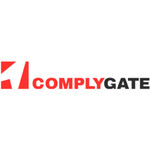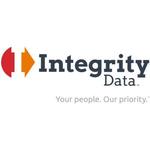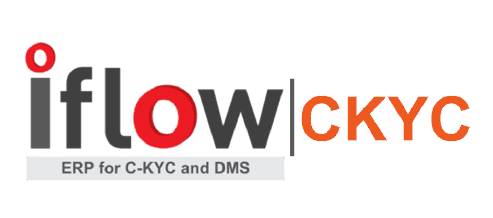Description

Complygate

EQube
Comprehensive Overview: Complygate vs EQube
As of my last update, Complygate and eQube are recognized as distinct products or services catering to different aspects of business operations. Here's an overview based on the available information:
Complygate
a) Primary Functions and Target Markets
Primary Functions: Complygate is primarily known as a software solution that offers a range of HR and compliance services. Its offerings usually include features such as:
- HR management
- Employee onboarding
- Attendance tracking
- Performance management
- Immigration compliance (notably important for UK visa sponsors)
Target Markets: Complygate targets small to medium-sized enterprises (SMEs) and HR departments that need robust compliance solutions, especially in the UK, where immigration compliance is a critical aspect for businesses hiring migrants.
b) Market Share and User Base
While exact market share figures may not be readily available, Complygate focuses on niches within the HR and compliance software market. Its specialized immigration compliance features could place it uniquely among UK businesses that require these specific functionalities. The user base would predominantly include HR professionals, SME managers, and compliance officers.
c) Key Differentiating Factors
- Immigration Compliance: A specialized feature that offers something not commonly found in generic HR software solutions, making it crucial for businesses dealing with immigration laws.
- Focus on SMEs: Tailored features and pricing structures that appeal to smaller enterprises needing comprehensive HR solutions without the complexity of enterprise-level software.
eQube
Note: eQube can refer to different products depending on context, such as eQube-BI for business intelligence or other analytical solutions within specific industries.
a) Primary Functions and Target Markets
Primary Functions: Assuming this refers to eQube-BI or similar, eQube products often provide:
- Business Intelligence and analytics
- Data integration
- Real-time data processing
- Data visualization and reporting
Target Markets: eQube targets organizations that need advanced data analytics and integration solutions. This includes industries like manufacturing, automotive, aerospace, and defense, where data flows are complex and critical to operations.
b) Market Share and User Base
eQube products typically operate in the business intelligence and analytics domain, facing competition from major players like Tableau, Power BI, and Qlik. Its market share is smaller compared to these giants but it serves niche market segments that require specialized analytics and integration capabilities. The user base includes data analysts, IT departments, and executives focused on data-driven decision-making.
c) Key Differentiating Factors
- Integration Capabilities: eQube's focus on seamlessly integrating complex data from various systems can be a key differentiator, especially in industries with intricate data landscapes.
- Real-time Processing: Ability to handle real-time data could be crucial for industries like manufacturing and aerospace, where timely insights are necessary.
Conclusion
Complygate and eQube serve different business needs and market segments. Complygate excels in HR management and compliance, particularly in the UK, while eQube focuses on providing robust data analytics and integration solutions. Their differentiation lies in specialized functionalities and industry focus, catering to specific business challenges within their respective domains.
Contact Info

Year founded :
2018
+44 12 1655 0311
Not Available
United Kingdom
http://www.linkedin.com/company/complygate-hr-software

Year founded :
2009
Not Available
Not Available
Australia
Not Available
Feature Similarity Breakdown: Complygate, EQube
As of my last update, Complygate and EQube operate in overlapping but distinct domains, emphasizing compliance and human resources management on one hand and broader business intelligence and analytics on the other. While specifics can change after my latest training data (October 2023), here's a generalized comparison and breakdown based on known features:
a) Core Features in Common
-
Employee Management:
- Both systems offer functionalities for managing employee data, leave management, and tracking work hours.
-
Compliance Tracking:
- They include mechanisms to ensure compliance with company policies and relevant legal requirements, although the depth and focus might vary.
-
Reporting and Analytics:
- Basic reporting features are typically part of both systems, allowing users to generate reports on different operational aspects.
-
User Access Control:
- Role-based access to protect sensitive information and ensure that the right users have the necessary access.
b) User Interface Comparison
-
Complygate:
- The user interface often features a clean layout focused on human resources functions. It emphasizes user-friendliness to support smaller businesses with limited technical expertise. Dashboards and navigation are tailored for HR tasks like employee onboarding and compliance monitoring.
-
EQube:
- EQube is more oriented towards data analytics, so its UI leans heavily on visualization tools like charts and dashboards. It's designed for users aiming to interpret and leverage data across multiple business functions, requiring more robust input and query capabilities.
c) Unique Features
-
Complygate:
- Visa and Immigration Management: This is a standout feature, helping businesses manage the complexities of employee visas and immigration status.
- Background Checks: Integrated services for conducting background checks, enhancing the hiring process.
-
EQube:
- Comprehensive Data Analytics: Focus on data mining and analysis for strategic decision-making. More advanced analytics capabilities for users interested in business intelligence.
- Cross-Functional Integration: Integrates with various business systems beyond HR, providing a broader spectrum of business data aggregation and analysis.
While there might be overlaps, the fundamental distinctions usually lie in how each platform positions itself within its primary market, with Complygate strong in HR compliance and EQube excelling in integrative data analytics. Always refer to the latest product offerings for the most current feature sets, as software platforms are frequently updated.
Features

Compliance Management
HR Analytics and Reporting
Employee Background Checks
GDPR Compliance
Employee Onboarding
Time and Attendance
Performance Management
Training and Development

Integration Capabilities
Collaboration Tools
Data Analytics
User Friendly Interface
Best Fit Use Cases: Complygate, EQube
Complygate
a) Best Fit Use Cases for Complygate:
Complygate is primarily a compliance and HR software platform that offers various solutions including HR management, compliance tracking, employee monitoring, and more. Let’s explore the best use cases for different types of businesses or projects:
-
SMEs and Large Enterprises:
- HR Compliance: Businesses that need to ensure regulatory compliance with labor laws, such as those in the UK, where Complygate is particularly strong.
- Recruitment & Onboarding: Companies looking for streamlined hiring processes with integrated background checks and onboarding tools.
-
Industries with Stringent Compliance Needs:
- Healthcare and Finance: Industries where data protection and compliance with regulations like GDPR are critical.
- Construction and Manufacturing: Sectors where safety, labor compliance, and certification tracking are crucial for operations.
-
Remote and Hybrid Workforces:
- Remote Monitoring: Businesses transitioning to remote or hybrid work models that require robust employee monitoring and performance management tools.
d) Catering to Different Industry Verticals or Company Sizes:
- SMEs: Complygate offers scalable solutions for small to medium enterprises looking to professionalize their HR processes.
- Large Enterprises: For larger organizations, the software provides in-depth analytics and customizable compliance management tools.
- Industry Specific Tools: Features like compliance audit trails and automated documentation cater specifically to highly regulated industries.
EQube
b) Best Fit Use Cases for EQube:
EQube may refer to a suite of software solutions often focused on data integration, analytics, and enabling digital transformation through digital twin technology or similar data management practices. Below are the scenarios where EQube might be preferred:
-
Engineering and Manufacturing:
- Digital Twins and Simulation: Organizations looking to implement digital twin technology for complex systems modeling and analysis.
- Product Lifecycle Management (PLM): Engineering firms needing seamless data integration across multiple PLM platforms.
-
Data-Intensive Companies:
- Data Integration and Analytics: Companies that rely heavily on integrating disparate data sources for enhanced data analytics capabilities.
- IoT Data Processing: Industries utilizing IoT technologies for real-time data analysis and operational improvements.
-
Transportation and Aerospace:
- Supply Chain Optimization: Industries focusing on improving logistics through integrated and predictive data analytics.
- Systems Monitoring: Aerospace companies tracking complex systems and components performance using digital twin models.
d) Catering to Different Industry Verticals or Company Sizes:
- Large Enterprises: EQube often suits large-scale operations that handle vast amounts of data across multiple systems.
- Sector-Specific Applications: Tailored solutions for sectors like aerospace, transportation, and manufacturing cater to their unique data management and analytics needs.
In summary, Complygate is ideal for companies prioritizing HR and compliance, particularly those in regulated industries or with flexible workforces. EQube excels in scenarios demanding sophisticated data integration and digital twin applications, notably in manufacturing, engineering, and data-heavy sectors. Both products offer scalable solutions to meet the needs of various business sizes and industry verticals.
Pricing

Pricing Not Available

Pricing Not Available
Metrics History
Metrics History
Comparing teamSize across companies
Conclusion & Final Verdict: Complygate vs EQube
To provide a conclusion and final verdict for Complygate and EQube, we need to evaluate the overall value of each product, consider the pros and cons of selecting either option, and offer specific recommendations for potential users.
Conclusion and Final Verdict
a) Best Overall Value:
Determining the best overall value depends on the specific needs and priorities of the user. However, if we consider general factors such as cost-effectiveness, feature comprehensiveness, and user satisfaction:
-
Complygate is often seen as a robust solution for organizations seeking comprehensive HR compliance management. It offers tools that are particularly strong in areas such as immigration compliance, employee background checks, and HR analytics.
-
EQube, on the other hand, tends to excel in business intelligence and analytics. It provides superior data integration capabilities and customizable dashboard solutions, making it ideal for organizations prioritizing in-depth data analysis and reporting.
Considering all these factors, Complygate might offer the best overall value for companies primarily focused on HR compliance and operational efficiency. Meanwhile, EQube could be the better choice for organizations where data analytics and business insights are the main priorities.
b) Pros and Cons:
Complygate:
-
Pros:
- Comprehensive HR compliance features.
- Strong employee monitoring and background check functionalities.
- User-friendly interface and relatively easy to implement.
- Good support for organizations with a need for specific compliance related features.
-
Cons:
- May not offer as extensive analytics functionalities as EQube.
- Could be overly specialized for organizations seeking a broader range of business intelligence tools.
EQube:
-
Pros:
- Exceptional data analytics and integration capabilities.
- Highly customizable dashboards for diverse reporting needs.
- Effective in offering deep insights through extensive data processing.
- Strong support for decision-making processes based on comprehensive data analysis.
-
Cons:
- Might not be as strong in HR-specific compliance and monitoring tools.
- Could be complex and require a longer implementation period for organizations not primarily focused on data analytics.
c) Specific Recommendations:
-
For Organizations Prioritizing HR Compliance and Employee Management:
- Choose Complygate. It is tailored for businesses that need to ensure thorough HR compliance and efficient employee management processes, especially if immigration compliance is a concern.
-
For Organizations Focusing on Data-Driven Decision-Making:
- Opt for EQube. Its strength in data integration and analytics provides the insights needed for strategic decisions. It's a suitable choice if your organization’s focus is on leveraging data for enhancing business outcomes.
-
Hybrid Requirements:
- If your organization requires a blend of both HR compliance and strong data analytics, consider integrating solutions or consulting with providers about potential customizations that might align with your business goals.
Ultimately, the decision should be aligned with the strategic focus, existing infrastructure, and specific business objectives of the organization. Both Complygate and EQube offer unique strengths that cater to different organizational needs.
Add to compare
Add similar companies




